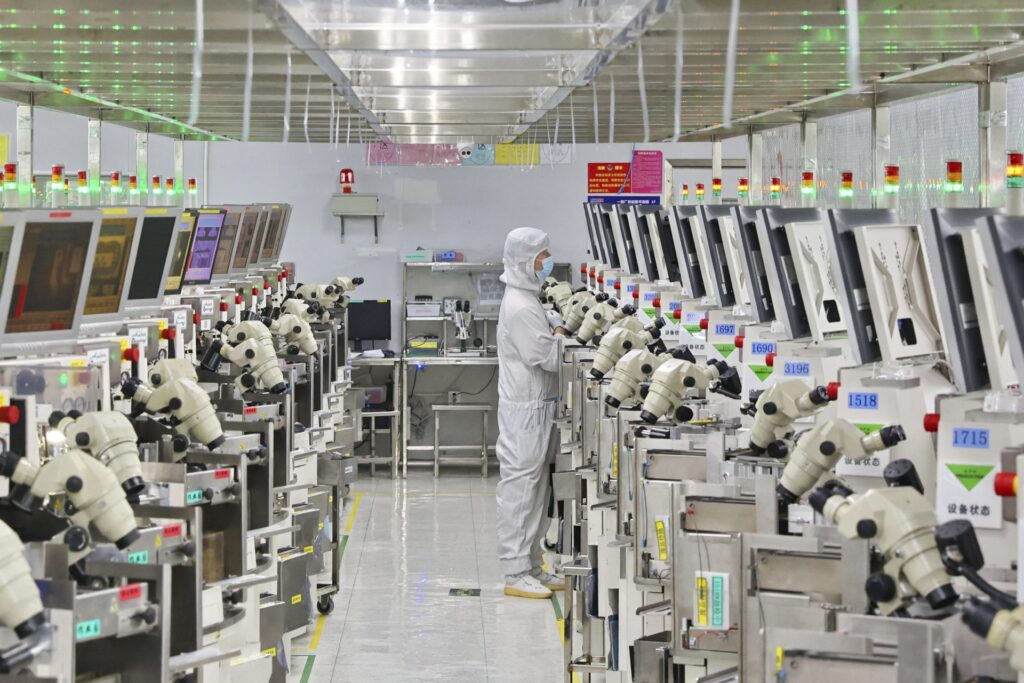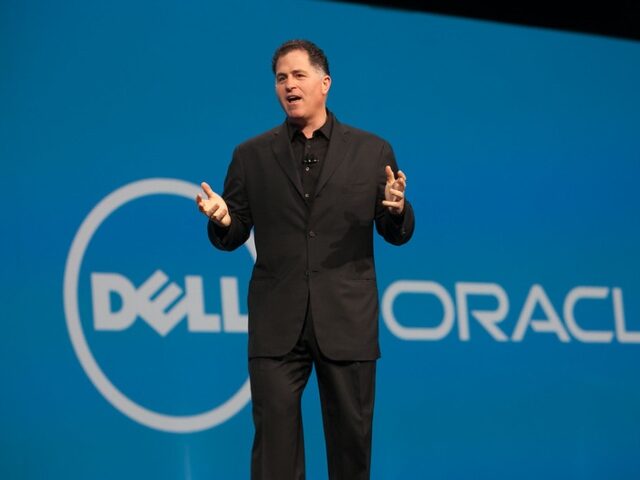Computing giant Dell reportedly plans to phase out all computer chips made by China by 2024. The company is also informing suppliers that they should shift their production out of China — or risk losing Dell as a customer.
Nikkei Asia reports that Dell has told its suppliers to significantly reduce the number of components in its products that are “made in China” in an effort to diversify its supply chain as concerns over tensions between the US and China grow in the tech community. According to sources, the company has also informed its suppliers that it aims to stop using chips made in China by 2024. Dell reportedly plans to manufacture all chips used in its products in plants outside of China by 2024.

A man works at a manufacturer of Integrated Chip encapsulation in Nantong in eastern China’s Jiangsu province on Friday, Sept. 16, 2022. Growth in Chinese factory activity was weak in September, export orders fell and employers cut jobs, two surveys showed Friday, Sept. 30, adding to pressure on lackluster economic growth (Chinatopix Via AP)
The ongoing tech war between the U.S. and China has been accelerating electronics makers’ efforts to diversify production away from China in recent months. This is no small task given that much overseas manufacturing has been based out of China for decades. “The goal is quite aggressive,” said one person with direct knowledge of the matter. “The determined shift involves not only those chips that are currently made by Chinese chipmakers but also at the facilities in China of non-Chinese suppliers. If suppliers don’t have responding measures, they could eventually lose orders from Dell.”
Dell’s domestic rival, HP, has also reportedly begun surveying its suppliers in order to determine the feasibility of moving its production and assembly out of China. HP and Dell shipped a combined total of over 133 million notebook and desktop computers in 2021, according to data provider Canalys. Most of the companies’ assembly takes place in the Chinese cities of Kunshan, Jiangsu province, and Chongqing, Sichuan province.
Dell has reportedly asked suppliers of other electronic components and product assemblers to help coordinate and prepare capacity in countries beyond China, including Vietnam. Previously, computer makers such as Dell and HP bought chips from chip developers without worrying about where they were manufactured. The change of attitude has taken some in the industry by surprise.
“There are thousands of components for notebook computers, and the ecosystem was so mature and complete in China for years,” said an executive at a chip supplier to both Dell and HP. “Previously, we knew Dell kind of had plans to diversify from China, but this time it is kind of radical. They don’t even want their chips to be made in China, citing concerns over the US government’s policy… It’s not just an evaluation, it’s not crying wolf. It’s a real and ongoing plan, and this trend looks irreversible.”
When contacted by Nikkei Asia, Dell confirmed that it was exploring supply chain diversification across the globe, but stated, “China is an important market where we have team members and customers to serve.” The company did not comment in detail on its diversification plans, but said: “To best meet our customers’ and partners’ needs and expectations, we have geographic diversity, flexibility and stability built into our global supply chain.”
The U.S. government recently ramped up its crackdown on China’s chip sector, citing national security concerns. Last October, it unveiled several strict controls on exports to the country. As a result, Chinese chipmaker SMIC announced in November that some of its U.S. chip developer customers had become hesitant about placing orders with the firm.
These tensions have provided fresh motivation for companies to shift their supply chains, including assembly, away from China. Apple reportedly plans to start making its MacBook notebooks in Vietnam by mid-2023, which means the company will have some alternative non-China production bases for all of its major product lines.
Lucas Nolan is a reporter for Breitbart News covering issues of free speech and online censorship. Follow him on Twitter @LucasNolan

COMMENTS
Please let us know if you're having issues with commenting.